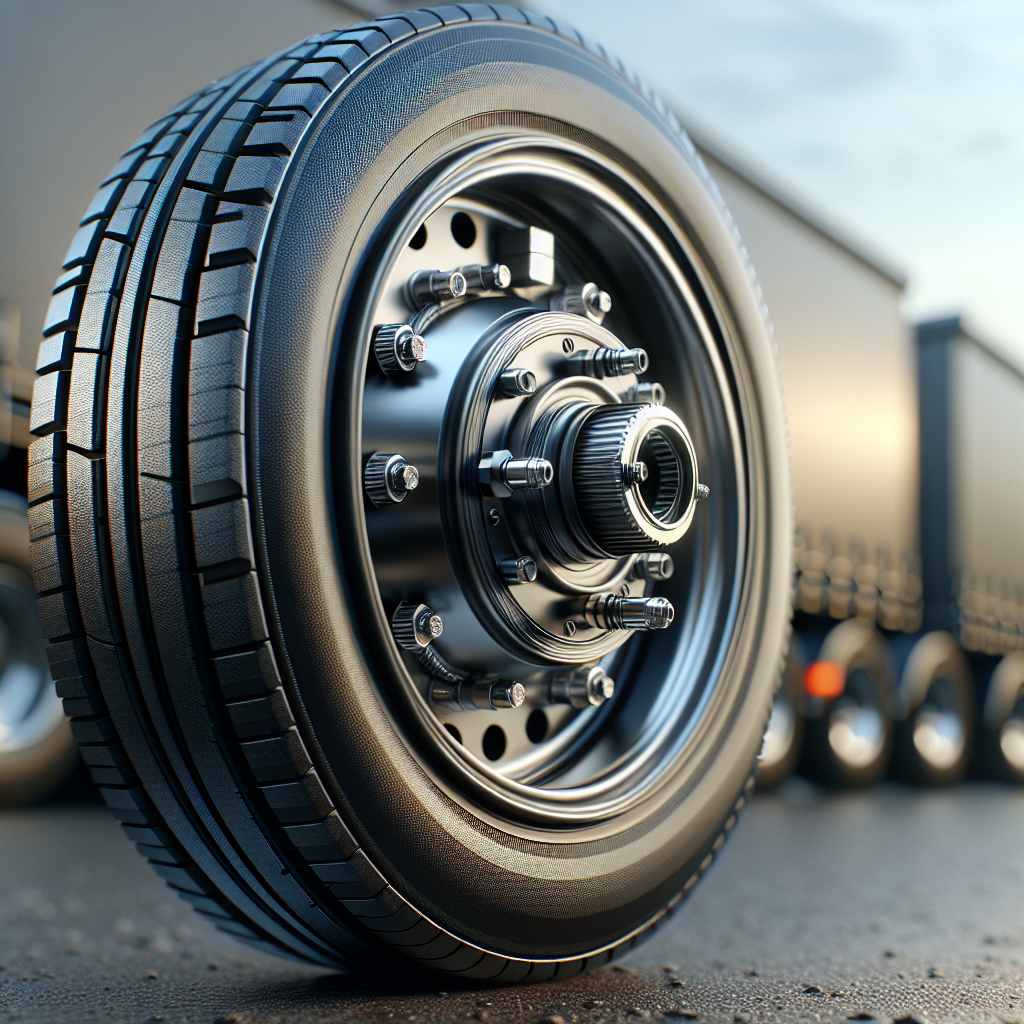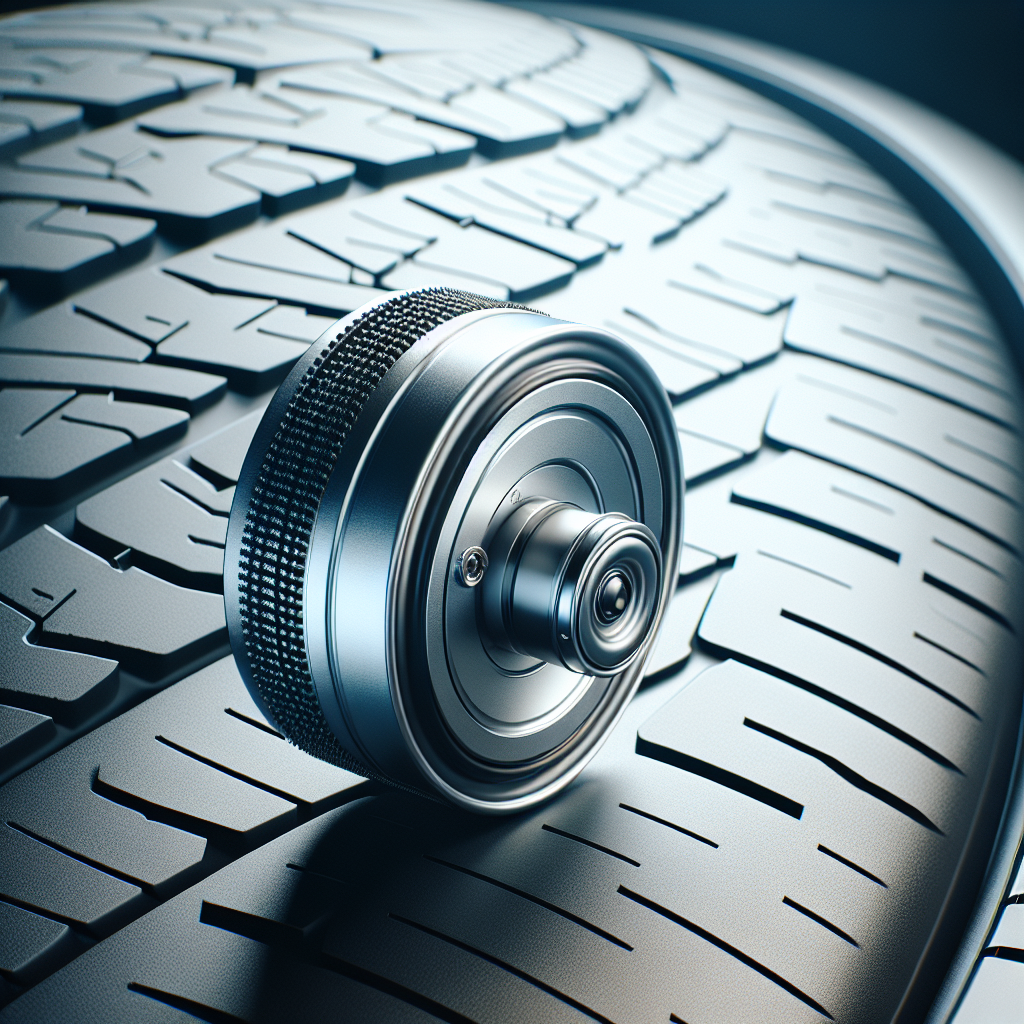Tire pressure sensors are vital components in modern vehicles, ensuring optimal safety and performance on the road. These sensors monitor the air pressure within the tires, alerting drivers to any significant deviations from the recommended levels. Maintaining proper tire pressure is crucial not only for vehicle stability but also for enhancing fuel efficiency and extending tire lifespan.
When tire pressure drops below the ideal range, it can lead to increased tire wear, reduced fuel economy, and even catastrophic tire failures. In trailers, where weight and load distribution can vary significantly, the role of tire pressure sensors becomes even more critical. They provide real-time data, allowing operators to make informed decisions and take proactive measures to prevent tire-related incidents.
By integrating tire pressure sensors into a trailer monitoring system, such as that offered by TrailerWatchdog, you can transform any trailer into a smart trailer. This technology not only helps in maintaining proper tire pressure but also enhances overall safety during transport.
With the knowledge that tire pressure sensors play an essential role in vehicle safety, it's clear that investing in this technology is a wise choice for any trailer owner. Tow with peace of mind, knowing that trailerwatchdog is standing guard.
How Tire Pressure Sensors Operate in Vehicles

Tire pressure sensors operate through a combination of technology and engineering designed to monitor tire inflation levels continuously. There are primarily two types of tire pressure monitoring systems (TPMS): direct and indirect sensors.
The direct TPMS utilizes individual sensors mounted on the inner surface of each tire. These sensors measure the actual tire pressure and send data wirelessly to the vehicle’s onboard computer system. When the pressure drops below a predetermined threshold, the system triggers a warning light on the dashboard, alerting the driver to check the tires.
On the other hand, the indirect TPMS does not have dedicated sensors in each tire. Instead, it relies on the vehicle’s ABS (anti-lock braking system) to measure the rotational speed of each wheel. If a tire is under-inflated, it will rotate faster than the properly inflated tires, prompting the system to alert the driver. While this method is less precise than direct TPMS, it still provides a level of monitoring to help maintain tire safety.
Both systems are designed to enhance safety and efficiency, ensuring that drivers are informed about their tire conditions. Understanding how tire pressure sensors operate is crucial for all vehicle owners, particularly those who operate trailers, where tire integrity is paramount for safe towing.
Key Components of Tire Pressure Sensor Systems

Understanding the key components of tire pressure sensor systems is essential for grasping how they function to ensure safety on the road. These systems typically consist of several critical parts that work together to monitor tire pressure effectively:
- Tire Pressure Sensors: These are the primary components that measure the air pressure inside each tire. In direct TPMS, each tire is equipped with its own sensor, while indirect systems rely on the vehicle's existing systems.
- Wireless Transmitter: The sensors are equipped with transmitters that send the pressure data to the vehicle's onboard computer. This communication happens wirelessly, usually via radio frequency, ensuring real-time monitoring.
- Onboard Computer: The vehicle's onboard computer collects and processes the data received from the tire pressure sensors. It analyzes the information to determine if the tire pressure is within the safe range and activates warning alerts if it detects a problem.
- Dashboard Warning Light: This light serves as the driver’s alert system. When tire pressure drops below the recommended level, the onboard computer triggers the dashboard warning light, prompting the driver to check the tires.
- Power Supply: Tire pressure sensors require a power source, typically provided by the vehicle's battery. Some systems may use solar power or kinetic energy generated from tire rotation.
Each of these components plays a crucial role in the overall functionality of tire pressure sensor systems, contributing to enhanced safety and performance. By maintaining optimal tire pressure, drivers can prevent tire blowouts and improve fuel efficiency.
The Role of Tire Pressure Sensors in Safety

Tire pressure sensors are vital tools in enhancing vehicle safety, playing an indispensable role in preventing accidents and ensuring optimal vehicle performance. Here’s how they contribute to safety:
- Prevention of Tire Blowouts: Maintaining the correct tire pressure is crucial for preventing blowouts. Tire pressure sensors monitor the air pressure in real-time, alerting drivers to any significant drops that could indicate a leak or puncture.
- Improved Handling and Control: Properly inflated tires provide better traction and handling. Tire pressure sensors help ensure that each tire is inflated to its optimal level, enhancing vehicle stability and control, especially during adverse weather conditions.
- Fuel Efficiency: Under-inflated tires create more rolling resistance, which can lead to increased fuel consumption. By keeping tires at the recommended pressure, tire pressure sensors contribute to better fuel efficiency, saving money and reducing emissions.
- Extended Tire Life: Consistently monitored tire pressure can extend the life of tires. By preventing excessive wear and tear caused by improper inflation, these sensors help ensure that tires last longer, reducing the frequency of replacements and associated costs.
- Driver Awareness: Tire pressure sensors raise awareness among drivers regarding their vehicle’s performance. The dashboard alerts serve as reminders to check tire conditions regularly, fostering better maintenance practices.
Overall, the role of tire pressure sensors in safety cannot be overstated. By integrating these systems into trailers and vehicles, drivers can enjoy peace of mind, knowing they are equipped to handle the challenges of the road.
Benefits of Using Tire Pressure Sensors for Trailers
Utilizing tire pressure sensors in trailers offers a host of benefits that enhance safety, performance, and efficiency on the road. Here are some key advantages:
- Enhanced Safety: As trailers often carry heavy loads, maintaining the correct tire pressure is critical. Tire pressure sensors provide real-time data, allowing drivers to quickly identify under-inflated or over-inflated tires, thus reducing the risk of accidents caused by tire failures.
- Load Management: Trailers are designed to carry specific weight limits. Tire pressure sensors help ensure that each tire can adequately support its share of the load. This not only improves safety but also enhances the overall handling of the trailer.
- Reduced Maintenance Costs: Regularly monitoring tire pressure can lead to a significant decrease in maintenance costs. By preventing premature tire wear and avoiding blowouts, trailer owners can save money on replacements and repairs.
- Increased Fuel Efficiency: Proper tire inflation is directly linked to better fuel efficiency. By using tire pressure sensors, trailer operators can ensure that their tires are always optimally inflated, leading to reduced fuel consumption and cost savings.
- Peace of Mind: Knowing that tire pressure is being monitored continuously gives drivers peace of mind. This technology allows for proactive responses to potential issues before they escalate into dangerous situations.
Incorporating tire pressure sensors into trailer systems not only enhances safety but also optimizes performance and efficiency, making it a smart investment for any trailer owner.
Conclusion on Tire Pressure Sensors for Enhanced Safety

In today's fast-paced world, ensuring the safety and reliability of trailers is paramount. Tire pressure sensors play a critical role in enhancing this safety by providing real-time data that helps prevent tire-related failures. By continuously monitoring tire pressure, these sensors allow drivers to maintain optimal tire conditions, significantly reducing the risk of accidents.
The integration of tire pressure sensors not only enhances safety but also contributes to improved fuel efficiency, reduced maintenance costs, and better load management. As a result, trailer owners can enjoy peace of mind knowing that they are taking proactive measures to protect their vehicles and cargo.
Investing in tire pressure sensors is a prudent step for any trailer owner committed to safety and efficiency. Tow with peace of mind, knowing that TrailerWatchdog is standing guard. Visit trailerwatchdog.com to learn more about our innovative trailer monitoring solutions!








